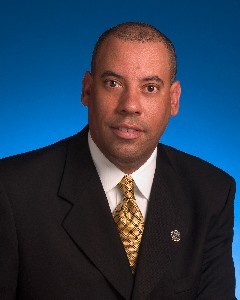It is much too early to draw definitive conclusions about the work of the newly revivified Memphis Crime Commission, headed now by Bill Gibbons, who formerly served as district attorney general and has returned to
Memphis from his most recent post in Nashville as state commissioner of Public Safety and Homeland Security.
Certainly there were good omens to be had from a recent Flyer conversation with Gibbons, who has also taken the helm of the new Public Safety Institute at the University of Memphis, and Harold Collins, former city councilman and longtime Gibbons aide in justice-related positions, who now serves as Crime Commission vice president for community engagement.
The most obvious question about the Crime Commission is: What is its role in directly countering criminal activity in Memphis and Shelby County? After all, the actual pursuit and apprehension of criminals is a street affair, the responsibility of the Memphis Police Department, the Shelby County Sheriff’s Department, and the other established law-enforcement bodies in Shelby County.
Gibbons and Collins make clear that their work is in direct collaboration with these agencies, whose specific experiences, anticipated needs, and statistical records provide much of the raw material for the commission’s conclusions. The commission’s work will not be in a vacuum, and whatever recommendations it makes for future law-enforcement strategies in a forthcoming new five-year plan will bear the direct input and specific imprimatur of Memphis Police Director Michael Rallings, Shelby County Sheriff Bill Oldham, and other county criminal-justice principals.
The commission is currently engaged, along with the MPD, in conducting a “zero-based assessment” of what police-force levels should be to deal with current and projected crime conditions. The Crime Commission came into being in 1996 during a rise in crime activity, and at that time made the recommendation for a police force of 2,400 to 2,500 officers. Acting on this and other recommendations in the first of the commission’s five-year plans, the MPD at that time was able to accomplish a serious reduction in criminal offenses. As is reasonably well known, the MPD’s force levels have, during a period of budgetary austerity affecting officers’ benefits, been reduced in number. The commission intends not only to assist in determining what today’s appropriate force level should be but is prepared to join in lobbying efforts to do what is necessary to achieve that level.
The Commission will also have recommendations to make, in tandem with local law-enforcement agencies, regarding specific crime-control practices, as it did with its advocacy of data-based “Blue Crush” enforcement in response to a spike in crime that occurred in 2006. Collins is focusing his efforts in developing effective modes of community-based policing. Gibbons is also interested in researching the efficacy of a proposal recently made by Juvenile Court Judge Dan Michael for extending the purview of Juvenile Court to offenders up to the age of 25.
Whatever changes come to pass, we are hopeful that the efforts of Gibbons and Collins will provide useful indicators and that the new Public Safety Institute, under Gibbons’ direction, will be able to provide valuable institutional back-up.



 Greg Cravens
Greg Cravens 



 Greg Cravens
Greg Cravens 